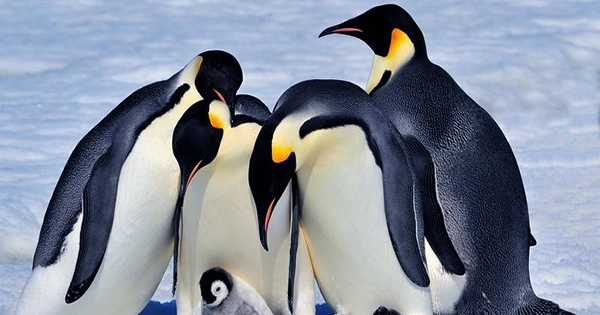Have you ever come across an emperor penguin? If not, time is running out, according to a recent Reuter’s article, which predicted that they will go extinct in the next 30 to 40 years due to the escalating climate catastrophe. Biologist Marcela Libertelli and the Argentine Antarctic Institute (IAA), who are no strangers to the world’s largest penguin, have issued a dire warning. After doing extensive study on Antarctica’s icy tundra, where emperor penguin colonies may be found, Libertelli claims that forecasts show the species has only a few decades remaining on Earth if climate change mitigation measures are not done.
The reproductive cycle is one area where the changing environment is decimating the species since some colonies have been unable to maintain chicks alive for multiple years in a row. Libertelli claims that over the past three years, all of the emperor penguin chicks hatched at the second-largest colony in the Weddell Sea have died. The chicks are dying as a result of sea ice that has frozen too late or has melted too early, exposing them to cold Antarctic seas. Baby emperor penguins, unlike adults, lack the plumage required to thrive under these circumstances.
Because they have the longest reproductive cycle of any penguin, Emperor penguins are particularly vulnerable to habitat deterioration due to melting sea ice. This implies that the parents must wait on solid sea ice with their chicks until they are ready to swim, but they aren’t allowed enough time to complete the cycle. “If the water reaches the young penguins, who are not ready to swim and lack waterproof plumage, they die of the cold and drown,” Libertelli added, adding it doesn’t appear as the situation will change very soon.
“[Projections imply that colonies between 60 and 70 degrees [south] will vanish in the next several decades; that is, in the next 30, 40 years,” she added. The Emperor Penguin has the longest reproductive cycle of any penguin species. When a chick is hatched, one parent keeps it warm by holding it between their legs until it grows its full plumage.
For the time being, the warning remains the same, since it is still feasible to regulate and reduce the most harmful impacts of climate change. However, getting results requires both major political commitments and personal lifestyle adjustments, and time is running out if we want to save wildlife like the emperor penguin. “Any species extinction is a disaster for the earth,” Libertelli remarked. “It doesn’t matter if it’s a little or giant plant or animal. It is a biodiversity loss.”
















